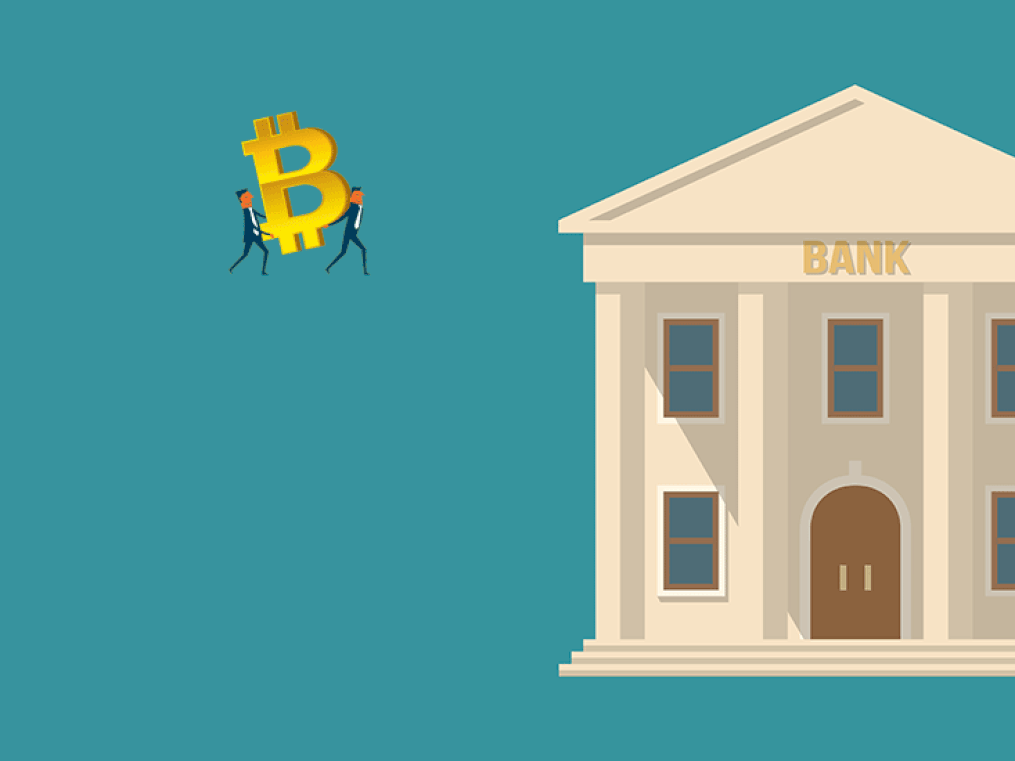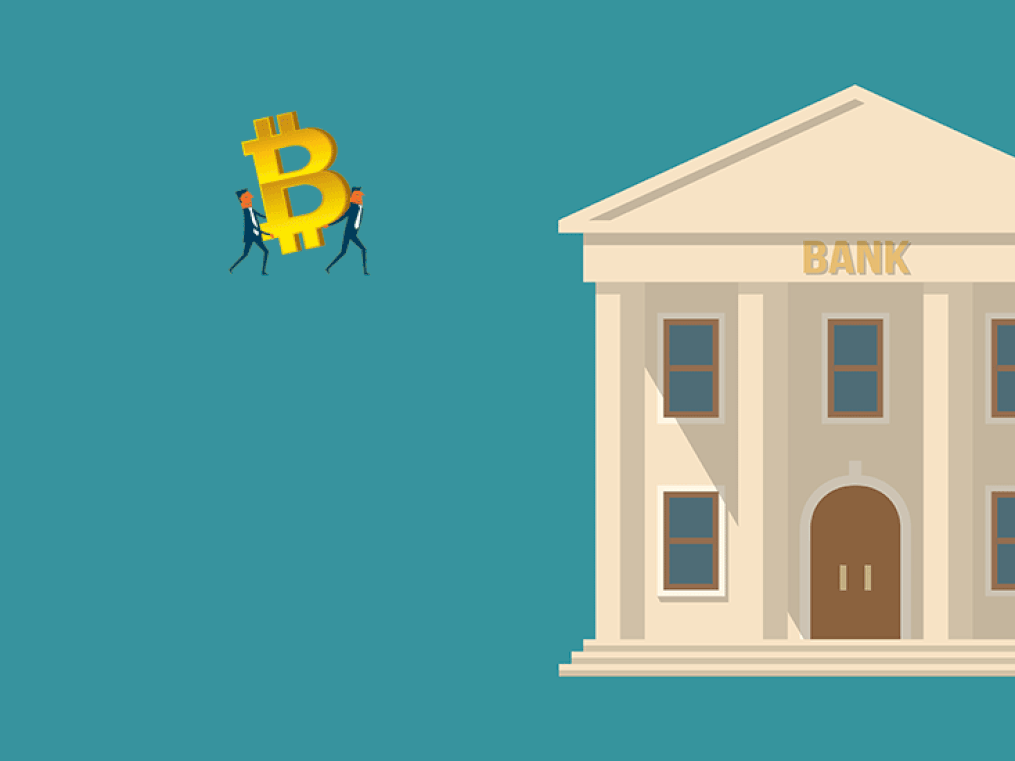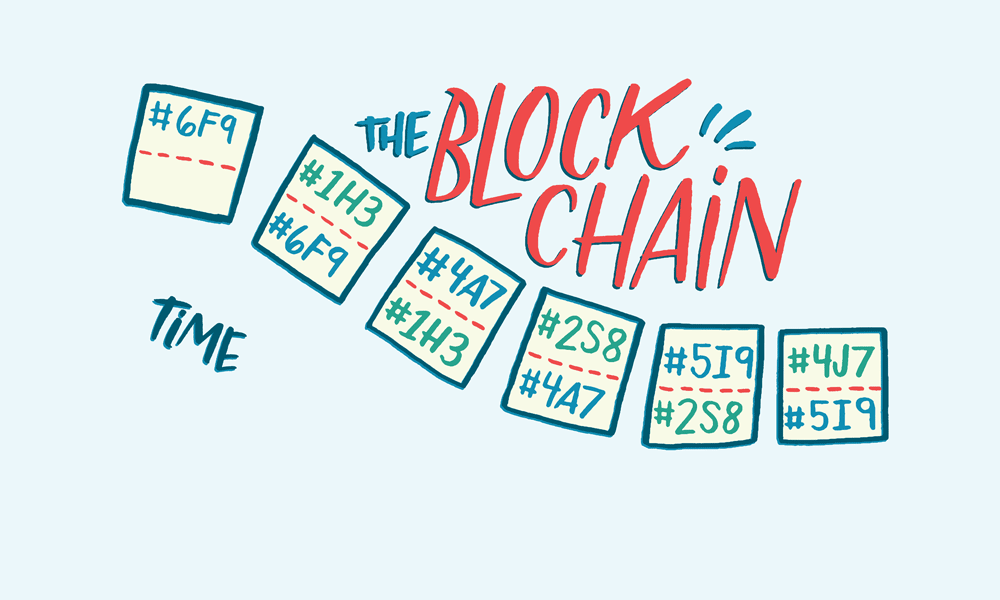If you are passionate about the future trends of the banking & finance sector, you have landed on the right blog.

Key Takeaways
As per Statista, 6.6 billion USD is worldwide spending on Blockchain solutions.
Banking is a top-notch vertical with the maximum distribution of Blockchain market value worldwide, and it is 29.7% compared to the others.
Blockchain spending is projected to reach around 19 billion U.S. dollars by 2024.
It is a technology that has lots of potentials to serve the banking and finance sector great.
It might be possible that you have searched a lot about the same on the internet. If you have also read a little bit about Blockchain, then it is good. Still, if not, then here you will read something exciting that leads to all the aspects related to the future scope of Blockchain in the banking and financial industries.
So, let’s start with some basic information.
What is Blockchain?
Although Blockchain has its applications in all industries in terms of banking and finance, it is much promising and facilitates each financial transaction with transparency, simplicity, and efficiency.
Blockchain in banking works as a revolutionary technique where the requirement of traditional processes and paperwork is none. It is just a simple fact its main advantage is security, so the banks can exchange money quickly with high-grade security.
As the definition says, Blockchain is an electronic ledger that records the details of each financial & non-financial transaction and stores the information in a distributed database in the form of a block.
Each block is added to the chain and contains the number of transactions. When a new transaction occurs, records is being added to each participant’s ledger. It combines three technologies programming, private key cryptography, and peer-to-peer network.
It resolves the issues of unauthorized transactions, double spending, and security issues. For prevention against cybersecurity threats, Blockchain technology in banking is much promising. In terms of benefits, you will find the following very interesting –
Blockchain facilitates
Real-time tracking
Better capital optimization
Reduced operational costs
Instant settlements
Transparent transactions
Data record immutability
Due to the multiple benefits, you will be amazed after knowing that 91% of banks have invested in Blockchain technology. That makes it perfect for financial and banking institutions.
What Is The Scope Of Blockchain Technology in the Banking Industry?

The people who are searching – Is Blockchain the Future of Banking? The straightforward answer is yes, and in addition, it is a great tool that allows banking institutions to connect and trade together on a global scale. It offers security and transparency; that’s why banking and financial institutions rely on it. In addition, it holds lots of potential for global eCommerce and can help in automating, streamlining the banking process.
Many organizations have shown interest in Blockchain due to the outstanding benefits it has. As a result, 41% adopted it and experienced high ROI, where a major portion is covered by financial institutions.
To understand it more, let’s dive into the details regarding 10-top cases of Blockchain technology-

#1. Swift Payments
As Blockchain support decentralized channel for payments so banking and financial institutions can utilize the benefits of it. It facilitates speedy payments and low processing fees where high-grade security is advantageous. It is not only worthy for established financial institutions also for fintech start-ups. Other advantages are seamless cross-border payments and the ability to serve the clients round the clock.
#2. Peer-to-Peer Transactions (P2P)
When there is a transaction requirement between two firms or institutions, P2P payments work great where the amount can be transferred from an individual’s bank account to the receiver’s mobile banking account. Blockchain technology makes P2P transactions easier, and there is no need to use the payment modes such as cash, debit/credit cards, checks, mobile wallets, gift cards, or anything else.
The benefits are:
- Worldwide Instant transactions
- Reduced money exchange fee
- Reduced payment fee
- Extremely secure
- Fiat and Cryptocurrency transactions supported
- Smooth establishment and less downtime
#3. Stock Exchange & Trading

It is such a wonderful thing that it also works great for stock exchange and trading. The point is traditional stock exchange consumes more time because of involving several formalities where Blockchain technology eliminates all hurdles due to its decentralized nature. There is no need for dedicated servers, and chances of information redundancy are less, making trading smooth, and worldwide traders can easily connect with each other.
#4. Clearance & Settlement
The traditional banking infrastructure takes more time for clearance and settlement. Blockchain technology is based on a decentralized approach, so the finance and banking institutions can clear and settle the payments uninterruptedly. It also allows the banks to settle the transactions via public Blockchain.
#5. KYC, Verification, and Validation
To eliminate all the chances of financial or identity fraud, all banking or financial institutions must do KYC (know your customers) verification. It also provides safety to the bank accounts from cybercriminals. Blockchain makes the KYC process smooth. It automatically updates the database with essential and relevant information and shares the information with officials perfectly that reduces the KYC cost.
#6. Trading
Still, most of the trading activities are on the papers that include credits, bills, and more. The Blockchain in the banking and finance sector replaces traditional trading in a revolutionary way and eliminates the chances of time-consuming manual processes and paperwork.
The advantages of Blockchain to the trading are-
- Transparency
- Uninterrupted payments
- Real-time updates
- High accessibility & more.

#7. Syndicated Loan
When a person gets the loan from a syndicate of lenders, it is called a syndicated loan. Having several participants is a time-consuming process for the loan provider banks, and customers to process things. KYC, BSA (bank secrecy act), and AML (anti-money laundering) are always challenges for banking institutions.
For overcoming these challenges, Blockchain promises a lot. Suppose, if one of the banks from the syndicate done with the compliance process, then others do not have to do it again. The banks can exchange information with ease. It also lowers the cost and time of the loan process.
#8. Audit, Accounting & Bookkeeping
Besides the other process, the Blockchain works fine for audit, accounting, and bookkeeping processes and can transform it great. In the traditional process, separate records based on transaction receipts are being kept.
With the help of Blockchain technology, the fintech firms can maintain an entry in a join register with transparency and security. Moreover, due to the great transparency, the audit can be done in less time with accuracy.
#9. ICOs (Initial Coin Offerings) & Crowdfunding
When funds are raised from a large number of people who have to contribute a small amount of money is called Crowdfunding. Blockchain technology is the perfect solution for it that facilitates ICOs (initial coin offerings). These are the tokens actually that work similar to the shares of a company, and investors can purchase and later on success they can sell these in cryptocurrency markets.

#10. Hedge Funds
The Hedge fund is a type of actively managed fund based on high-risk – high return investments. The traditional hedge funds are being managed by fund managers working within a specific entity. Crypto hedge funds work as an open platform that facilitates more strategists or investors to participate with transparency.
The Final Words!
How can Blockchain benefit the banking sector? This question arises several times when it comes to implementing this technology in the financial and banking sector. Then you will be amazed to know that worldwide most prominent investors in Blockchain belong to the banking & financial sectors, and the market share is 46%. In terms of the future, there is huge growth. Till 2026 the market size is expected to reach 22.46 billion USD. In 2020, it was only 0.84 billion USD.
Due to having advantages such as transparency, less processing fee, accuracy in verification & validation, fast payment processing, and more, it is advantageous. In conclusion, it can also be said that a Blockchain banking application delivers great results, is suitable for all financial institutions, even for fintech start-ups, and totally eliminates the flaws in the traditional banking process.






Hi I'm newbie here, This is an extraordinary article. I thought that it is fascinating the advantages that the blockchains, for example, BTC can give the monetary side of the economy. I appreciated your article I'm glad I opened it and read